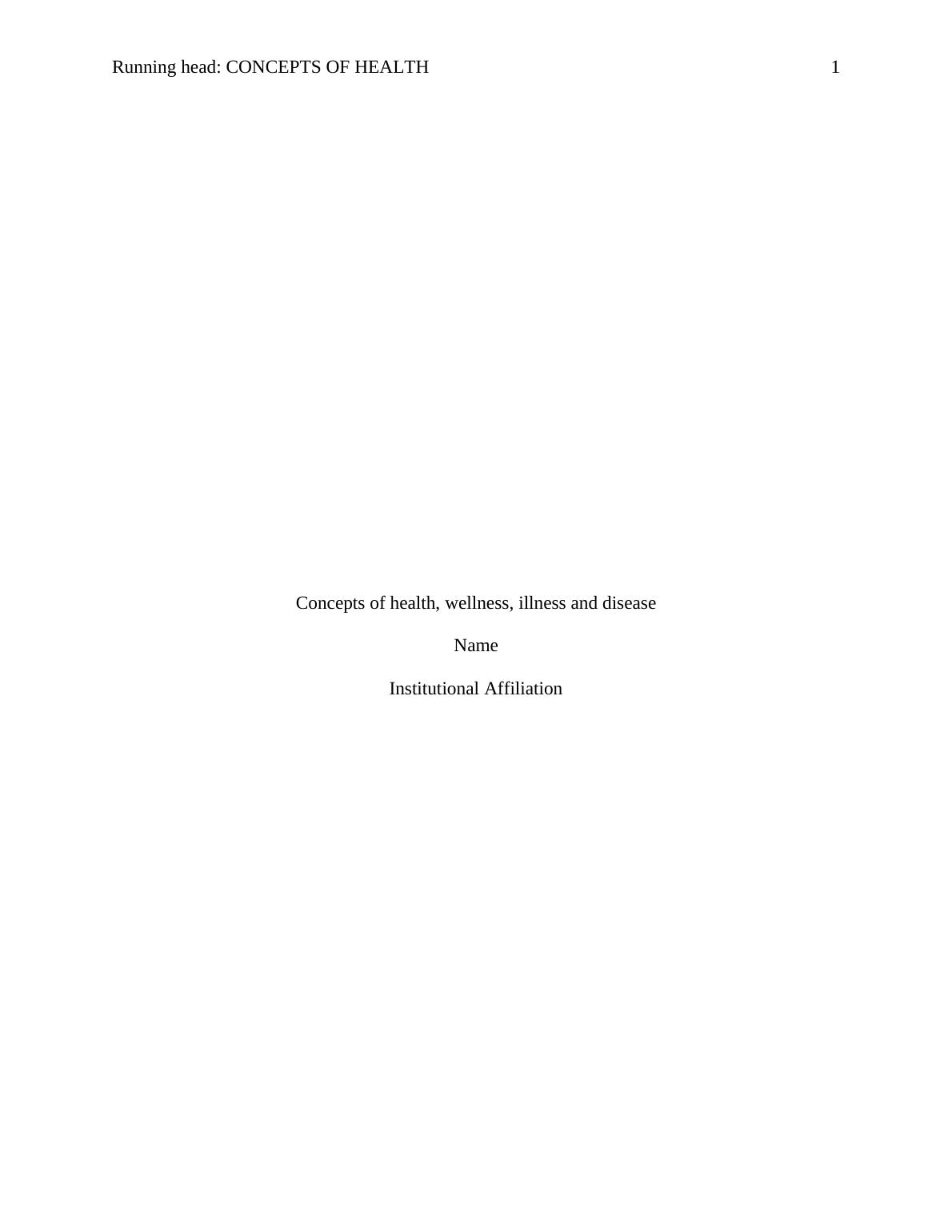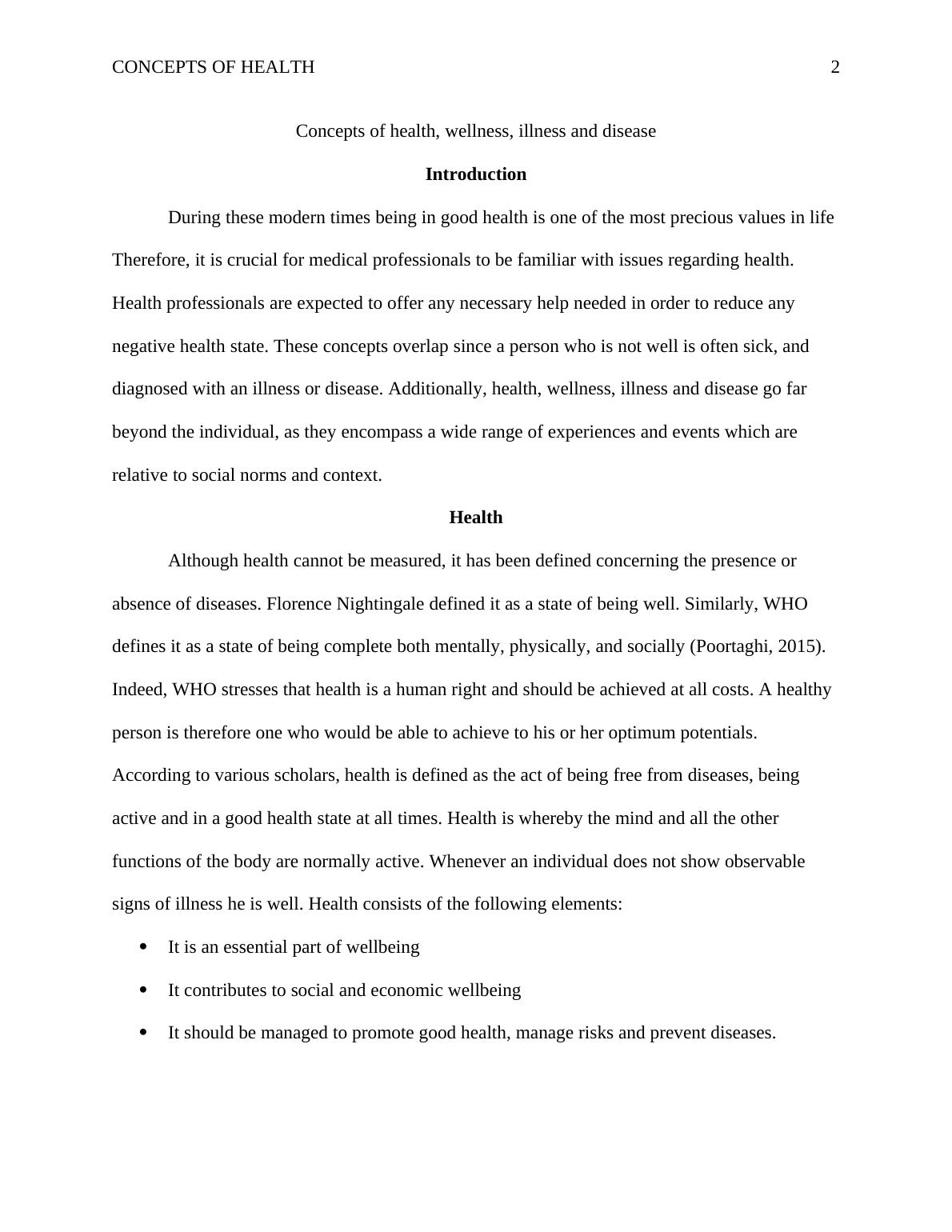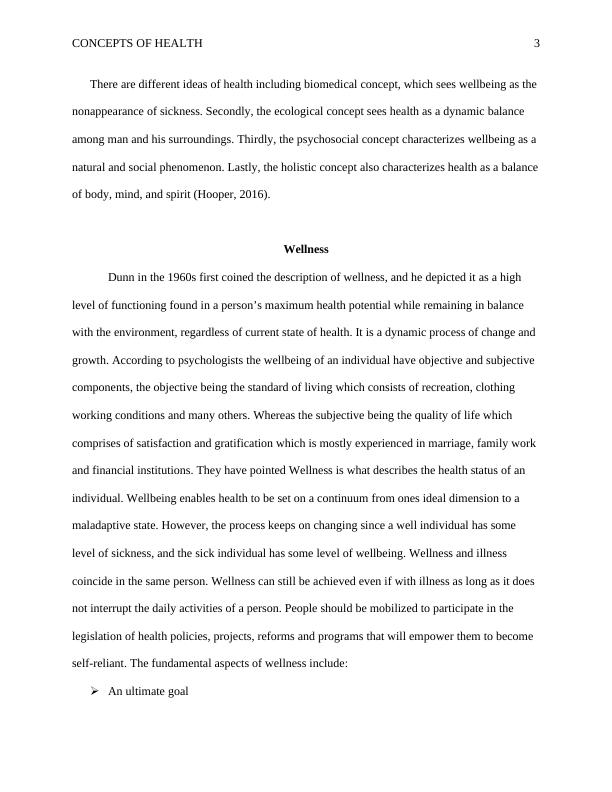Concepts of Health, Wellness, Illness and Disease
9 Pages1796 Words319 Views
Added on 2023-04-19
About This Document
This study explores the concepts of health, wellness, illness, and disease and their interplay. It discusses the definition of health, the different ideas of health, and the concept of wellness. It also delves into the understanding of disease and illness, and the bio psychosocial factors that contribute to illnesses. Additionally, it provides a critical analysis of general responses to health and wellness issues. The study references relevant literature and concludes with the importance of considering psychological and social factors in evaluating diseases.
Concepts of Health, Wellness, Illness and Disease
Added on 2023-04-19
ShareRelated Documents
End of preview
Want to access all the pages? Upload your documents or become a member.
Healthcare Infrastucture Assignment
|14
|3451
|17
Health Assessment
|7
|1661
|58
Theoretical Underpinnings of Health and Illness Interpretations
|8
|2450
|103
Sam Case Study Mental Health 2022
|10
|2870
|27
Concepts of Positive Mental Health
|9
|3154
|52
Obesity and its Impact on Health and Wellbeing
|11
|2872
|59



